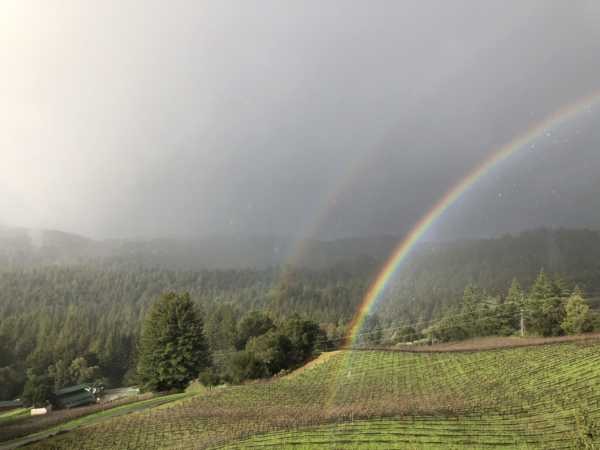
April 22, 2025 – Every day should be Earth Day. We all want to make choices that lessen impact. Honestly, freight/shipping is one of the biggest polluters and adds more and more cost to the product.
So buying locally is always the right choice, from grocery items to wine. Which reminds me that I need to stop buying Perrier and Pellegrino, and stick with sparkling from Oregon (Cascade) or even Arizona. Or maybe it’s time to get a Sodastream?
Alternative packaging like the aluminum bottles that Bogle uses for its Element[AL] series seek to reduce waste and be more easily recyclable. But they requires special equipment.
Using lighter glass and eschewing capsules, like Big Basin Vineyards, Madson and Sante Arcangeli do, is a great step in the right direction. It’s all about what’s inside and where it came from.
Organic local wines are few, but growing. It’s hard to control pathogens in a coastal climate, but there are a few stalwart producers, among them:
Big Basin Vineyards – All vineyards are farmed organically, including the estate vineyard in Boulder Creek.
Cooper Garrod – Organic since the beginning, 131 years ago. Recipients of the 2024 California Green Medal Sustainable Winegrowing Community Award! for their commitment to Certified Sustainable and Organic Farming.
Kathryn Kennedy – The wines under the Estate and Lateral labels for this Saratoga gem are made with certified organic grapes (CCOF).
Madson – All the vineyards in their portfolio are 100% organic and are farmed regeneratively, and they are committed to being carbon neutral in their vineyard practices.
Silver Mountain – Jerold O’Brien has farmed his estate certified organic vineyard since 1979, where he grows Mount Eden clone Chardonnay, Pinot Noir and Merlot.
Storrs – Pamela and Steve use Southdown ewes for weed control and to contribute biodiversity to the soils. All their wines are organically grown.
Look for wines that say Certified Organic, or SIP certified, or Made with Organic Grapes.
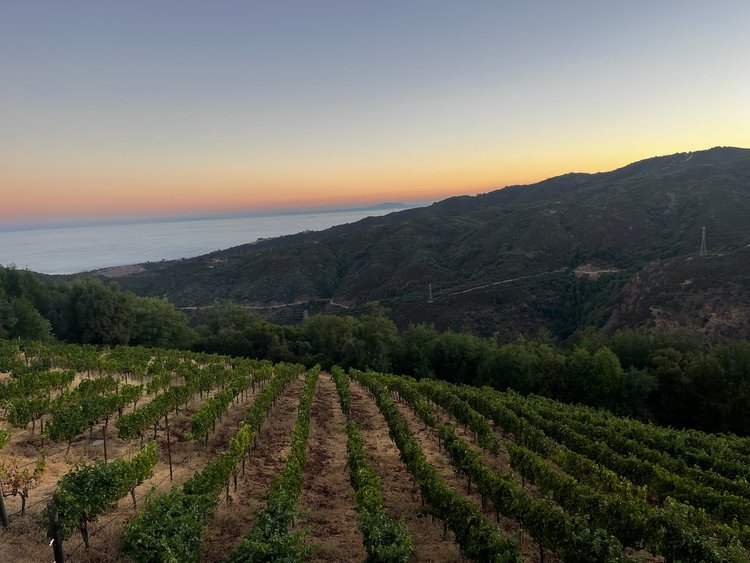
You can’t go wrong with Bonterra, America’s largest producer of organically grown wines, with half a million cases. Guided by the wisdom and foresight of Element[AL], they began farming organically in 1987. Their philosophy is simple: farming is a two-way relationship with the land. They are the largest winery to achieve the rigorous certification of Regenerative Organic (ROC) by the Regenerative Organic Alliance (ROA). Regenerative is getting a lot more airplay these days, and we’ll delve into it from time to time as this trend hopefully spreads. As an actual movement, the ROA was established in 2017, and is basically a collective of farmers, business leaders, and experts in soil health, animal welfare, and social equity. Bonterra has stepped up to the plate as a leader. Their Estate Sauv Blanc uses grapes from Mendocino, and it’s juicy and satisfying. Their 2022 Chardonnay for $14.99 is quite pleasant with lime and pear, and offers just enough crispness. The Biodynamic McNab Cab from Mendocino is everything you want in a Cab, and nothing you don’t.
I’m very fond of all the Benziger wines, especially the organically and biodynamically produced examples. Founded in 1980, Benziger was the first Sonoma vineyard to be Biodynamic Certified. All their vineyards throughout northern California are tended using eco-friendly farming, and each one is certified Biodynamic, organic, or sustainable.
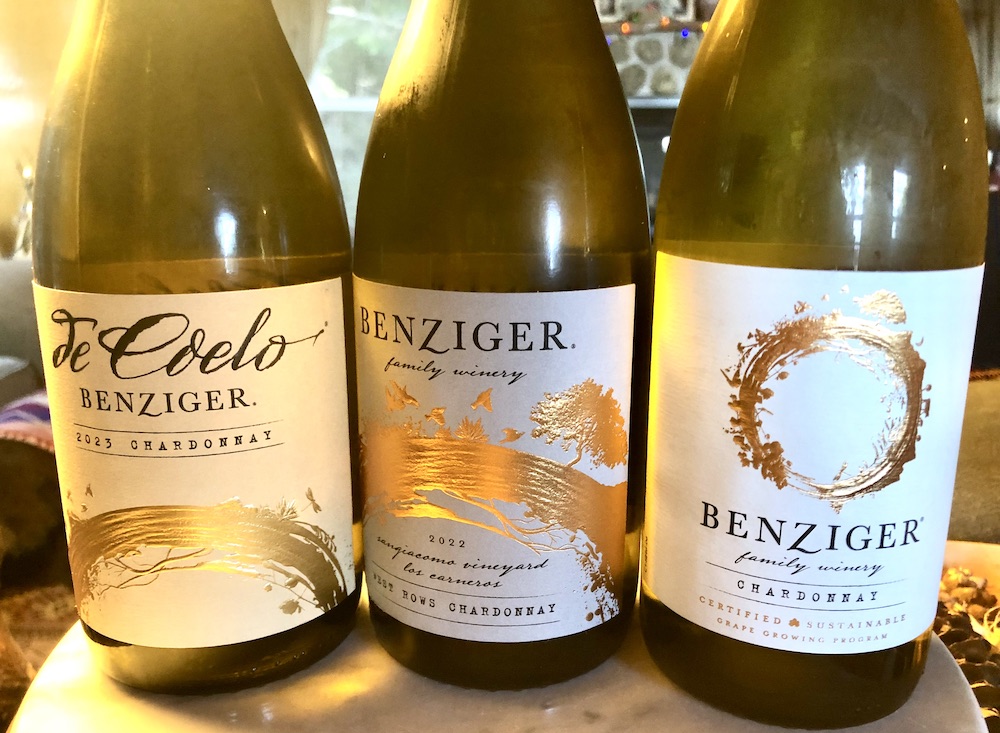
The estate vineyard and winery, tucked into the hills of Glen Ellen, where Jack London wrote his masterpieces, is a special ecosystem that is farmed according to the Steiner principles. It’s worth a visit, especially if you have out of town company and want to show them a good time in a very quaint and unhurried part of Sonoma wine country Seeing the 70 plus wooly weed eaters (aka sheep), including young lambs, rushing through the vine rows after working on the cover crops last spring, was exhilarating. Led by venerable Ewe Number 35, the boss lady, the flock was headed down the steep hill to their pen, which sits by the pond below the tasting room. The sheep live a blessed life.
Turns out VP and Brand Ambassador Chris Benziger, the youngest of the Benziger siblings and the face of the brand, is always feeding them treats. These sheep live the life of leisure, grazing maybe 2 or 3 hours at a stretch in a specific block on the estate vineyard before they are moved to a new one. And they only work half days. The vineyard manager told us that out on the Sonoma coast, they have a relationship with a local shepherd who grazes his flock at De Coelo and Bella Luna Vineyards, for the purpose of weed and cover crop control. Benziger uses sheep and also cattle at all their biodynamic properties.
Why is this important? Sheep add as much to the vineyard as they take away, and at Benziger, the 85-acre poster child for sustainable and biodynamic practices, they not only add fertilizer to the land, but they aerate the soil with every step. They are an essential part of what makes this ecosystem thrive.
Healthy soil leads to heathy vineyards, and healthy vines are better able to fight disease and pests. Biodynamic practices, done in concert with the rhythm of the cosmos, include burying a cow horn filled with manure, and spraying specific compost teas of herbs and flowers like stinging nettle, chamomile, valerian and yarrow, designed to boost plant immunity and fight vine pests.
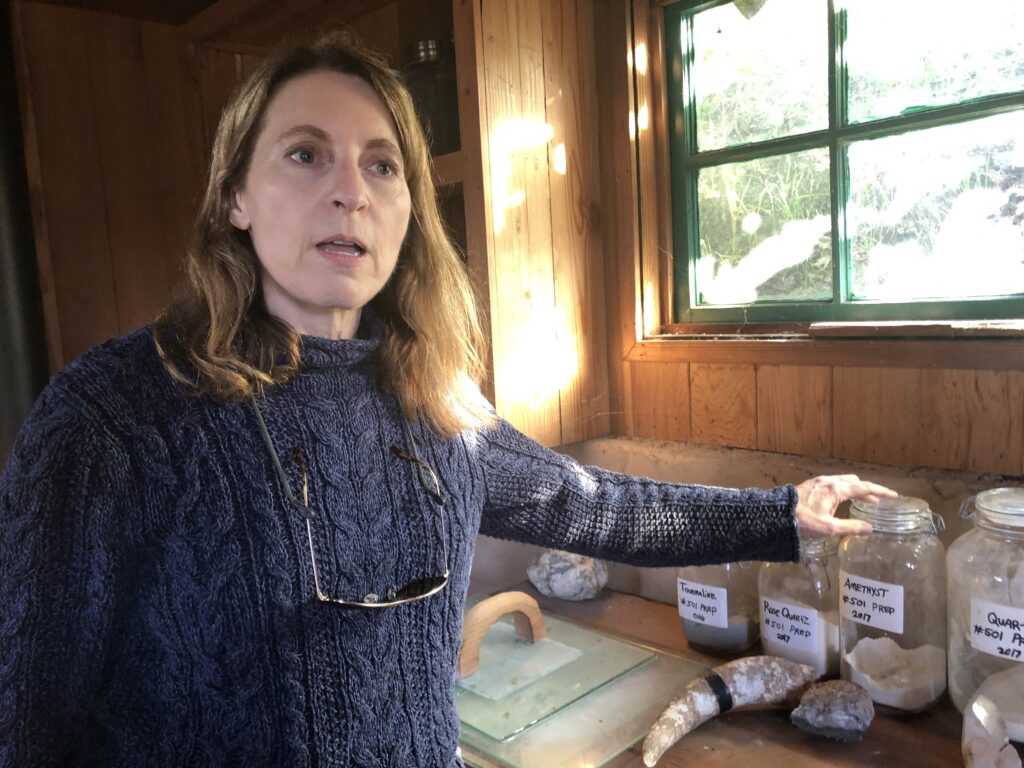
Spending time with winemaker Lisa Amaroli listening to her talk about the vineyards she taps for some of her single vineyard wines, gave me an appreciation for how things were done in the pre-industrial, pre-chemical era of farming. She is in charge of 34 separate wines, each one carefully made in small lots to reflect the particular vineyard from whence they originate. Among the standouts in this righteous portfolio, and remember these are biodynamic wines with nothing added or taken away, are:
2023 Benziger de Coelo Chardonnay, $65 – From one of the first Demeter Certified Biodynamic vineyards in the western part of Sonoma, about 5 miles from the ocean. It sings of its ocean lair, salty and fresh. Floral, citrus-kissed, lanolin-laced and honeyed on the nose, this very low alcohol wine (12.5%), from a former sheep ranch, is crisp, and bright with tart apple, kiwi, and lemonade.
2022 Benziger Family Chardonnay, $16 – From sustainably farmed cool coastal vineyards, this is a pleasant wine with creaminess and a savory finish. A great value.
2022 West Rows Chardonnay, Los Carneros, $48 – Orchard fruit and baking spice are infused with a silky mouthfeel that leads to a luxurious finish.
Wineries supporting Earth Day every day include Iron Horse in Sebastopol. Their Ocean Reserve Blanc de Blancs is dedicated to marine conservation. The current release, vintage 2019, supports conservation partner Heal the Bay, a Southern California nonprofit working to mitigate ocean damage after the Los Angeles wildfires.
Whatever you uncork for Climate Week, which is going on in San Francisco right now, toast the many blessings of Mother Nature we are so privileged to enjoy. Reward and thank the farmers who are tending the land with respect. So far, this is the only home we have.
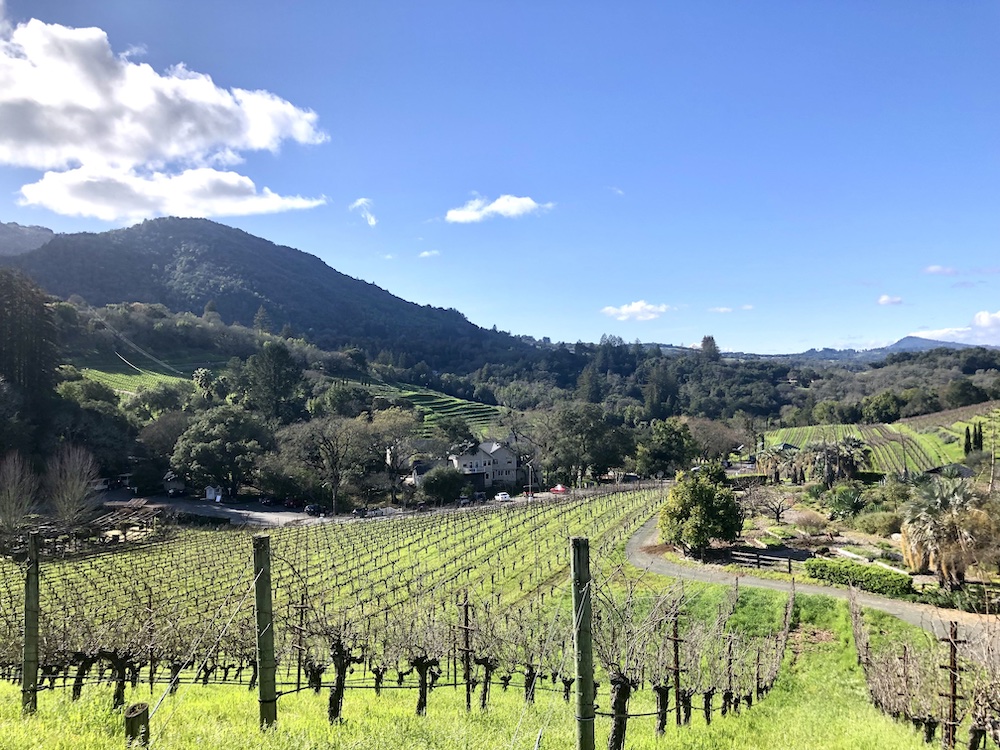
About the author
Laura Ness is a longtime wine journalist, columnist and judge who contributes regularly to Edible Monterey Bay, Spirited, WineOh.Tv, Los Gatos Magazine and Wine Industry Network, and a variety of consumer publications. Her passion is telling stories about the intriguing characters who inhabit the fascinating world of wine and food.
- Laura Nesshttps://www.ediblemontereybay.com/author/lness/
- Laura Nesshttps://www.ediblemontereybay.com/author/lness/
- Laura Nesshttps://www.ediblemontereybay.com/author/lness/
- Laura Nesshttps://www.ediblemontereybay.com/author/lness/


